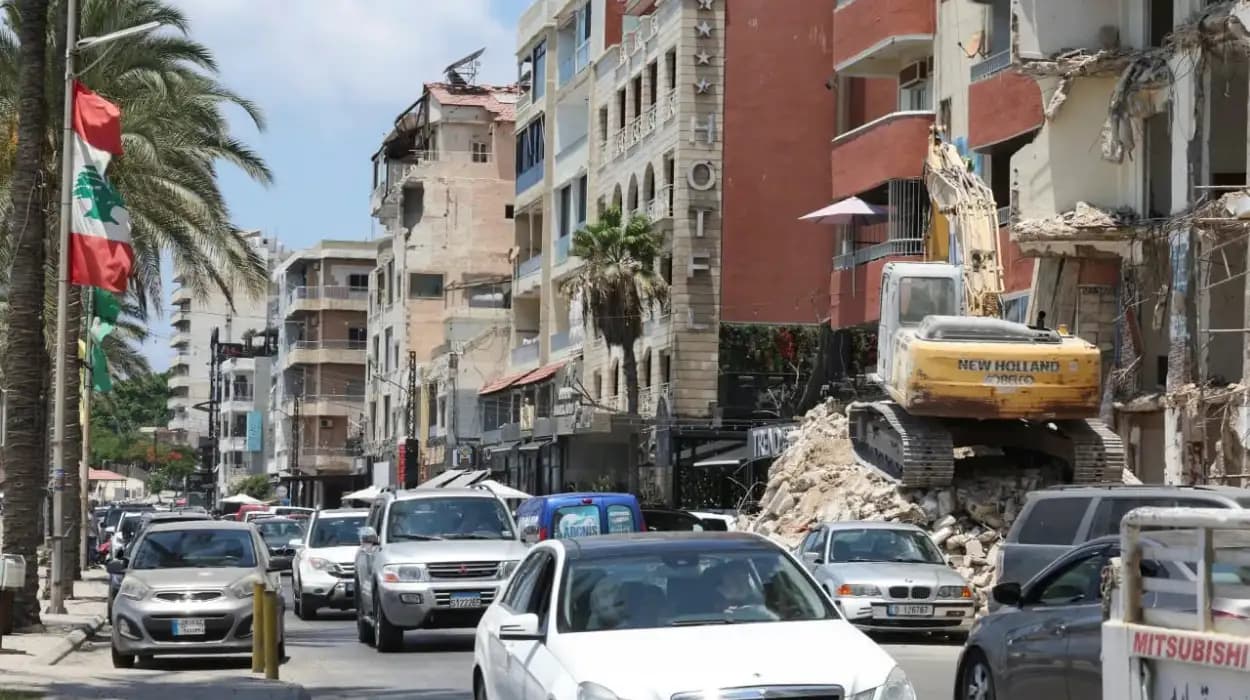Six Lebanese army soldiers were killed in southern Lebanon
due to an explosion of unexploded Israeli ammunition remnants as reported by
various news agencies. Meanwhile, White House special envoy Steve Witkoff met
Qatari Prime Minister Sheikh Mohammed bin Abdul Rahman al-Thani to discuss a
diplomatic plan aimed at ending the Gaza war and securing the release of
hostages held by Hamas.
Deadly Explosion in Southern Lebanon Involving Lebanese Army
Several Lebanese army personnel lost their lives and others
were injured following an explosion caused by remnants of Israeli military
ammunition during an attempt to dismantle unexploded ordnance in southernLebanon. As reported by the Lebanese National News Agency and Anadolu Agency,
the blast occurred in the region between the towns of Majdal Zoun and Zebqine
in the Tyre district. The Lebanese army engineering team was actively trying to
neutralise leftover munitions from prior Israeli military operations when the
tragedy struck.
The exact casualty figures vary slightly between sources.
Xinhua and Lebanese local media reported over 10 Lebanese army members killed
and injured, while LBCI indicated that six soldiers were killed and two
injured. Anadolu Agency and TRT Global data confirm the fatalities while noting
the ongoing risk posed by Israeli munitions left from past aggressions.
Southern Lebanon has increasingly become dangerous due to the lingering effects
of previous Israeli strikes, with repeated incidents causing damage and deaths
to both civilians and security personnel.
Background Context of Israeli Military Impact in Lebanon
The explosion tragedy takes place against the backdrop of
ongoing conflict and instability in southern Lebanon. Israel launched military
operations against Lebanon on October 8, 2023, which escalated into a
full-scale war by September 2024, resulting in over 4,000 deaths and some
17,000 injuries. Although a ceasefire was reached in November 2024, Israeli
forces continue to carry out near-daily attacks in southern Lebanon, claiming
to target Hezbollah activities. Israel has failed to fully withdraw from the
region, maintaining military presence at five border outposts despite deadlines
to withdraw set for January and February 2025.
Israeli Defence Forces (IDF) have conducted hundreds of
strikes and operations targeting Hezbollah, killing numerous operatives and
destroying weapons and installations, as reported by the Long War Journal.
These ongoing hostilities contribute to the dangerous environment in which
Lebanese security forces operate, including working to dismantle hazardous war
remnants such as unexploded ordnance.
Diplomatic Moves: Witkoff’s Meeting with Qatari Prime Minister on Gaza
In a separate but related development reflecting continued
international engagement in Middle East conflict resolution, White House
special envoy Steve Witkoff met with Qatari Prime Minister Sheikh Mohammed bin
Abdul Rahman al-Thani on August 9, 2025, in Ibiza, Spain. According to reports
from Axios, The Jerusalem Post, and Roya News, the discussion focused on
drafting a comprehensive diplomatic plan aimed at ending the war in Gaza and
securing the release of all hostages held by Hamas.
This diplomatic effort is significant as it comes amid
ongoing tensions and a recently approved Israeli cabinet plan preparing to
fully occupy Gaza City. The proposed deal, shaped by cooperation between the
United States and Qatar, could delay Israel’s planned military offensive on
Gaza, which remains unscheduled but anticipated to take several weeks in
preparation.
Witkoff has stated the Trump administration’s preference for
an “all or nothing” agreement to conclusively end the Gaza war rather than
partial or incremental solutions. Israeli strategic affairs minister Ron Dermer
indicated that an “End Game” proposal is expected soon from the Trump
administration, although scepticism remains, especially regarding Hamas’s
willingness to accept such a deal. Israeli officials acknowledge the wide gap
between Israel and Hamas on peace terms, suggesting comprehensive agreement may
be difficult at this stage.
During the Israeli cabinet meeting, Prime Minister BenjaminNetanyahu’s statements retained ambiguity, leaving open the possibility of
halting the offensive if progress is made towards a peace deal and hostage
release. Some ultranationalist ministers opposed this cautious approach,
illustrating internal political divisions in Israel.
International Reactions and Humanitarian Concerns
The decision by the Israeli cabinet to proceed with the Gaza
offensive has drawn global criticism from the foreign ministers of the United
Kingdom, Australia, Germany, Italy, and New Zealand. They issued a joint
statement condemning the plan, warning it would exacerbate the already
catastrophic humanitarian crisis, endanger hostages’ lives, and risk mass
civilian displacement.
The diplomatic efforts led by Witkoff and Qatar represent an
urgent attempt to avoid further bloodshed and destruction in Gaza through an
immediate and permanent ceasefire complemented by the unconditional release of
hostages.
Critical Reflection on the Situation
The tragic death of Lebanese army soldiers due to unexploded
Israeli munitions underscores the continued severe human cost of past and
ongoing Israeli military operations in Lebanon. Despite ceasefire agreements,
the Israeli military presence and actions in southern Lebanon continue to pose
relentless threats to security and peace in the region.
Moreover, the complexity of the Gaza conflict, combined with
entrenched political positions on all sides, challenges the prospects for a
peaceful resolution. While diplomatic engagements such as Witkoff’s meeting
with the Qatari Prime Minister demonstrate international will to negotiate
peace, the deep divisions, particularly with Hamas’s hesitance, highlight the
formidable obstacles to ending the violence.
The recent explosion killing Lebanese troops
and the ongoing diplomatic efforts to end the Gaza war illustrate the
intertwined nature of violence and diplomacy in today’s Middle East. Both
developments call for a renewed focus on achieving lasting peace to prevent
further loss of life and suffering.
